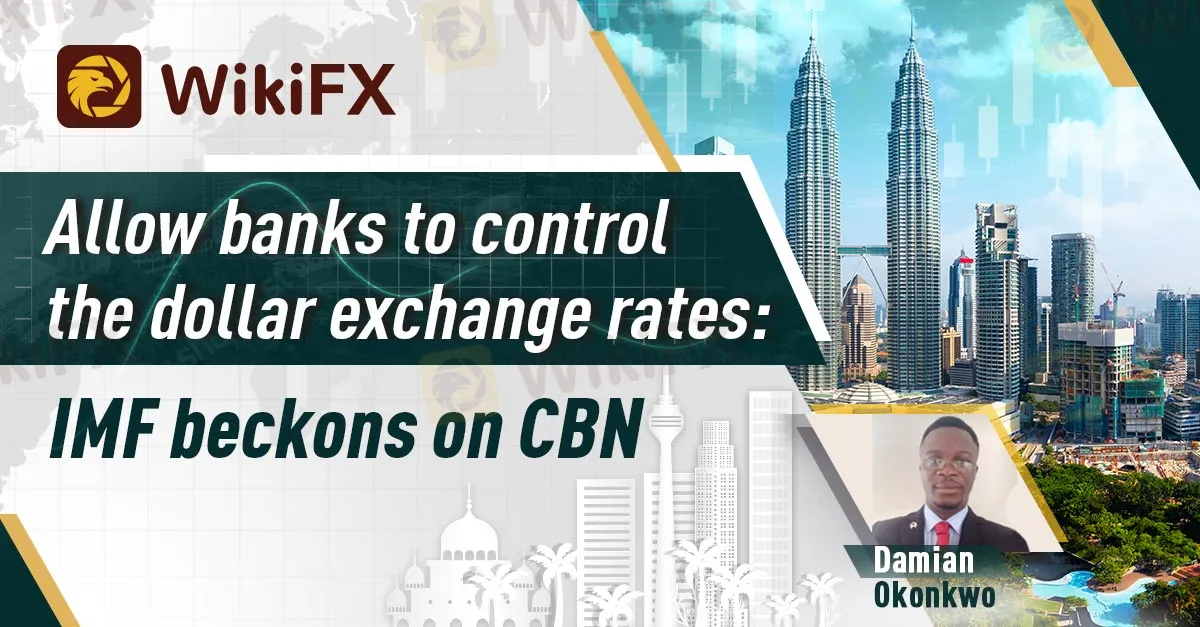简体中文
繁體中文
English
Pусский
日本語
ภาษาไทย
Tiếng Việt
Bahasa Indonesia
Español
हिन्दी
Filippiiniläinen
Français
Deutsch
Português
Türkçe
한국어
العربية
Allow banks to control the dollar exchange rates: IMF beckons on CBN
Abstract:The International Monetary Fund (IMF) has called on the Central Bank of Nigeria (CBN) to re-examine its foreign exchange (FX) management policy which allowed the apex banks to control the dollar exchange rates within the country. They considered this as limiting the market volatility by preventing the commercial banks to freely determine Fx buy-sell rates in the I&E windows.

By: Damian Okonkwo

The International Monetary Fund (IMF) has called on the Central Bank of Nigeria (CBN) to re-examine its foreign exchange (FX) management policy which allowed the apex banks to control the dollar exchange rates within the country. This had left the commercial banks sourcing to obtain dollars for their clients.
Addressing the present FX crisis in Nigeria in its 2022 Article IV Consultation presented during its official visit to the country, the IMF called on the CBN to allow the commercial banks to control the dollar exchange rates including the buy-sell prices as this will help reduce the dollar scarcity and improve the FX supply in the market. According to the IMF:
“In the medium term, the CBN should step back from its role as main forex intermediator, limiting interventions to smoothing market volatility and allowing banks to freely determine forex buy-sell rates.”
Thus, the IMF believed that allowing commercial banks to control the exchange rate will further increase the FX inflow into the country.
Speaking further on this, the IMF explained that the banks maintaining a uniform and market-clearing FX exchange rate is very necessary for boosting foreign investors' confidence in the economy.
Nonetheless, IMF stated that the continued present FX shortage, and practice of maintaining a stable exchange rate by the CBN amidst a weak Naira due to high inflation and limited debt servicing policies will all the more trigger fears of more future devaluation for the Naira amongst investors.
Describing this, the IMF stated that “These factors hinder much-needed capital inflows, encourage outflows, and constrain private sector investment.”
Above all, the body advised the Nigerian government to consider reducing its tax rate to fair levels at par with the standards of the Economic Community of West African States (ECOWAS).

Disclaimer:
The views in this article only represent the author's personal views, and do not constitute investment advice on this platform. This platform does not guarantee the accuracy, completeness and timeliness of the information in the article, and will not be liable for any loss caused by the use of or reliance on the information in the article.
Read more

Justice Served: Illegal Investment Scheme Ends in RM28 Million Repayment
The Kuala Lumpur High Court has ruled that a Singaporean businessman, Chan Cheh Shin, must return RM28 million to 122 Malaysian investors after the court determined that his investment operations were conducted illegally.

Tokyo Police Arrest 4 for Unregistered FX Trading Scheme
Four men in Tokyo were arrested for running an unregistered FX trading operation, collecting over ¥1.6 billion from 1,500 investors.

Doo Group Expands Its Operations with CySEC License
Doo Financial, part of Doo Group, receives a CySEC license, allowing FX/CFD services in Europe. This strengthens its global presence and regulatory standards.

Exness: Revolutionizing Trading with Cutting-Edge Platforms
Exness offers traders seamless experiences with its Exness Terminal and Exness Trade app, providing flexibility, advanced tools, and low-cost trading.
WikiFX Broker
Latest News
BSP Shuts Down Uno Forex Over Serious AML Violations
ACY Securities Expands Global Footprint with South Africa Acquisition
Why Even the Highly Educated Fall Victim to Investment Scams?
Warning Against Globalmarketsbull & Cryptclubmarket
Rupee gains against Euro
Tokyo Police Arrest 4 for Unregistered FX Trading Scheme
Axi Bids AUD 52M to Acquire Low-Cost Broker SelfWealth, Outbidding Competitor Bell Financial
Crypto Influencer's Body Found Months After Kidnapping
US Regulators Tighten Oversight on Bank Anti-Money Laundering Efforts
Doo Group Expands Its Operations with CySEC License
Currency Calculator


